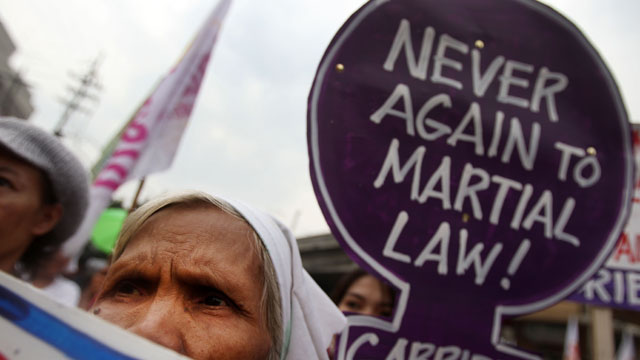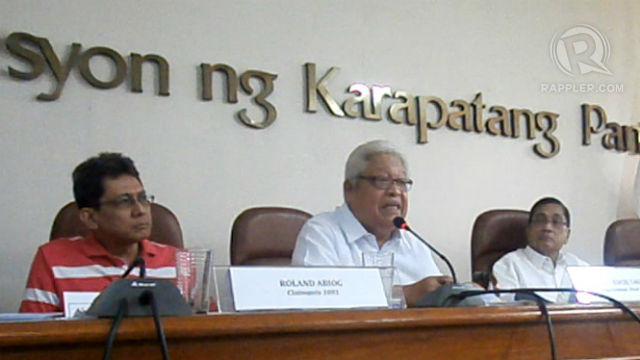SUMMARY
This is AI generated summarization, which may have errors. For context, always refer to the full article.

MANILA, Philippines – It has been 31 years since Martial Law was lifted and 27 years since the Marcos regime ended. But most of the martial law human rights victims still haven’t been given their due reparation and recognition.
READ: Martial law victims: ‘Remember us’
In an effort to recognize the victims of martial law, civil society organizations and government agencies working in the field of human rights agreed to compile stories of victims. The idea to document these stories was born in an archiving workshop held on October 2-4 in Quezon City.
“Archives for Memory: The Experience of Argentina” served as an avenue for some 30 government officials and NGO members to agree to the establishment of a centralized archive for the stories of missing, disappeared and killed persons during the martial law period.
The workhop was spearheaded by the Argentine Embassy, Swisspeace, the Swiss Embassy and the Commission on Human Rights (CHR).
Shared history, different approaches
Argentina and the Philippines have shared almost parallel histories of brutal dictatorships and military rule. From the 1970s to 1980s, the two countries were led by authoritarian leaders. In Argentina’s case, a military junta controlled the government.
Argentina’s experience with miltary rule proved to be particularly bloody, with over 15,000 estimated to have been directly affected by political persecution in what is known as Argentina’s dirty war.
In the 1980s, a reform-minded government established a formal mechanism for victims of human rights abuses to seek recognition and justice. This lead to civil society organizations to start an initiative to record the stories of those victims as way to remember them.
Remembering the victims
A human rights and archival organization, Memoria Abierta (Open Memory), has helped Argentinian families of victims of human rights to find their missing or dead family members since 1999.
According to Memoria Abierta Director Valeria Barbuto, a Technical Committee gathered all the testimonies, listed all the names of the human rights victims, and listed all the names of the torturers, killers and places of concentration camps. The data were submitted to the Argentine Truth Commission.
Argentina’s Truth Commission had prosecuted 374 ‘tormentors’ and continues to pursue many others.
Argentinian lawyer Josefina Nacif said the Argentine government’s first step was to grant pensions to the spouses and children of disappeared persons.
“The victims considered that these pensions were an obligation of the State, which had to provide assistance to those who were forced into a difficult situation due to the enforced disappearance of their spouses,” Nacif added.
Philippine government’s action
The Human Rights Victims Reparation and Recognition Act of 2013 (RA 10368), which was signed by President Benigno Aquino III on February 25, 2013, is a law aimed at recognizing the sacrifices of victims of human rights abuses under the Marcos regime.
Among its other provisions, it mandates the creation of a Claims Board to ascertain the claims of families of human rights victims to compensation by the state.
Seven months since its enactment, the President has yet to appoint the members of the Board.
In a forum held on August 2, Former Albay Rep Edcel Lagman, a principal author of the bill, called for the collective action of different groups to help expedite the appointment of the claims board.

“It is our duty to help the President choose the claims board. Only those who are qualified and competent should be included in the board,” Lagman said.
While thousands of Filipino victims of martial law await the full implementation of RA 10368, the initiative to record their stories will immortalize their spirit and sacrifice. – Rappler.com
Add a comment
How does this make you feel?
There are no comments yet. Add your comment to start the conversation.